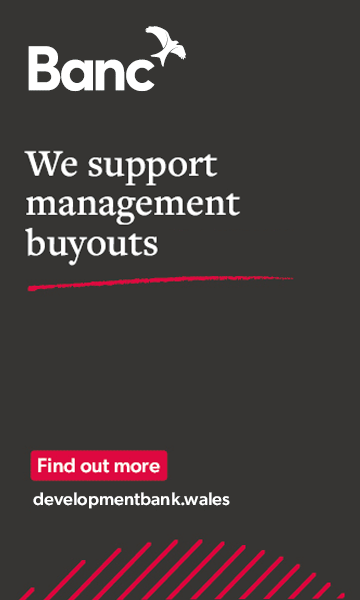Wales has seen the biggest increase in distressed companies of any part of the UK, according to new research by The Institute for Turnaround (IFT).
The IFT’s latest Societal Impact Report shows that the number of struggling companies has risen in every area of the UK over the past year, apart from the Isle of Man.
The number of distressed companies in Wales in need of turnaround support grew by 15 per cent between Q2 2022 and Q2 2023 to 5735. This is higher than any other part of the country (not including the Channel Islands).
Wales is followed by Yorkshire (10,337) and the North East (3,745) which have both seen an 11 per cent rise in struggling companies. The South East (almost 37,000) and London (33,000) had the highest number of distressed businesses in Q2 of this year, according to The IFT whose members specialise in business transformation.
They saved an estimated 55,000 jobs in 2022-23, helping UK companies to add £2.6 billion in shareholder value. And demand for turnaround management services continues to grow among The IFT’s membership.
Over 90 per cent are busier in 2023 than in 2022, and over 95 per cent expect more turnaround activity in the next 12 months than in the last.
The retail sector saw the largest increase in distressed companies in the last year and was the third most common sector seeking turnaround support. The manufacturing and construction sectors were the top two sectors providing work for turnaround professionals, both of which saw an increase in distressed companies over the period.
Turnaround experts expect these three sectors to lead demand for turnaround over the next 12 months.
IFT professionals reported that over half (54 per cent) of companies they are called in to assist are simply unaware that they are in trouble until it is too late. This year’s survey showed continued strong resistance among distressed companies to turnaround support.
Over three quarters (77 per cent) of IFT members reported cultural resistance to external advice as the most common reason that companies didn’t seek support.
Against this, while turnaround projects typically require an adviser to focus on short-term survival, some 60 per cent of them have involved a full business transformation process in the last year, reflecting the IFT’s focus to “adapt, transform and succeed.”
The report also draws attention to the greater use of restructuring plans, a procedure that enables directors of viable companies which have built up debt in a troubled period to achieve a balance sheet reset and transform their fortunes.
Claire Burden, IFT board member for the South West and Wales, who is national advisory consulting partner at Evelyn Partners, said:
“Manufacturing, construction and retail are important industries for Wales, but we expect these three sectors to lead demand for turnaround support over the next 12 months.
“So it’s crucial that struggling businesses seek expert turnaround advice as soon as possible during these challenging economic times.”
Milly Camley, CEO of The IFT, said that challenged businesses can transform their fortunes with expert advice. The advent of restructuring plans, introduced through new company law legislated during the pandemic, can provide a balance sheet reset, thus enabling an authentic company-led turnaround.
“In 2023’s difficult economic climate, the work of our members has never been more important or relevant. Last year, our members saved an estimated 55,000 jobs and protected £2.6 billion in shareholder value.
“In the next six to 12 months most of our members are forecasting a busier period, as more firms struggle with escalating challenges, including the availability of affordable credit after over a decade of cheap money plus rising inflation and labour costs.
“Sometimes good management teams find themselves struggling due to bad luck or highly leveraged balance sheets that looked viable pre-pandemic. These stressed but viable firms are the ones that members of The IFT support.”











